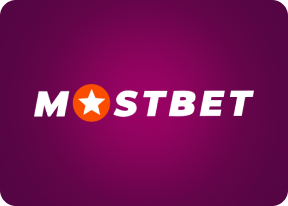Ebben a cikkben áttekintjük Magyarország legjobb online kaszinóit 2025-re. Az oldalon megtalálható a legnépszerűbb kaszinók rangsora, azok előnyei és jellemzői – mindegyiket kulcsfontosságú szempontok alapján válogattuk össze, mint például a bónuszok, a játékok változatossága és a kifizetési feltételek. Emellett kitérünk a biztonság, a licencelés és a felelős szerencsejáték kérdéseire is.
A 20 legjobb online casino oldalak magyar játékosok számára
- TOP 3 legjobb online kaszinó 2025 áprilisában
- Hogyan értékeljük az online kaszinókat?
- Statisztika a magyar játékosok körében
- Legjobb online kaszinó bónuszok 2025 áprilisában
- Top 3 legjobb slot online kaszinóban
- Népszerű fizetési módok online kaszinókban Magyarországon
- Hogyan kerülheti el az átveréseket online kaszinó választásakor?
- Mobil online kaszinók
- Új online kaszinók
- Külföldi online kaszinók, amelyek elérhetők magyar játékosok számára
- Online kaszinó valódi pénzért
- Kriptokaszinók Magyarországon
- Mire számíthatunk az online szerencsejáték jövőjében?
- Felelősségteljes játék
- Gyakran ismételt kérdések
TOP 3 legjobb online kaszinó 2025 áprilisában
| Kaszinó | Értékelés | Rövid leírás | Fő jellemzők |
|---|---|---|---|
| 1xSlots | 4.9/5 | Kaszinó több mint 7000 játékkal és exkluzív VIP-programmal. | Bónusz akár 150% 120 000 HUF-ig; 21% visszatérítés megforgatás nélkül a VIP-ben; versenyek akár 12 millió euróig; kifizetés 0–48 óra |
| Gamix.vip | 4.9/5 | Kaszinó gyors kifizetésekkel, sport- és e-sport fogadásokkal. | Bónusz 100% 193 315 HUF-ig + 10 IP; cashback napi akár 20%; rakeback 15%; azonnali kifizetések |
| NV Casino | 4.8/5 | Kaszinó exkluzív bónuszokkal és VIP-ajánlatokkal. | Bónusz akár 800 000 HUF + 225 IP; high roller bónusz akár 1,5 millió HUF; heti bónuszok; kifizetés 0–72 óra |
Hogyan értékeljük az online kaszinókat?
Online kaszinó értékeléseink során csapatunk világos és átlátható kritériumokra támaszkodik: licencelés, bónuszfeltételek, játékfelhozatal sokszínűsége és az ügyfélszolgálat minősége. Ezért listánkon kizárólag biztonságos kaszinók szerepelnek, amelyek elfogadják a magyar játékosokat.

Licencelés és szabályozás megbízhatósága

Bónuszajánlatok értékelése

Játékfelhozatal és minőség

Valódi játékosok véleményei és tapasztalatai

Kifizetések: időtartam és átláthatóság

Weboldal használhatósága és navigációja

Felelős játékszervezés funkciói

Ügyfélszolgálat hatékonysága

Statisztika a magyar játékosok körében
Évente partnereinkkel közösen felmérést végzünk a magyar játékosok körében, hogy meghatározzuk az online kaszinók vezetőit különböző kategóriákban. Bemutatjuk a 2025-ös év díjazottjait, amely több mint 6 000 aktív magyar felhasználó véleményén alapul:
- Legjobb üdvözlő bónusz: Weiss (a játékosok 38%-ának szavazata)
- Leggyorsabb kifizetések: Gamix.vip (a játékosok 41%-ának szavazata)
- Legjobb nyerőgép-választék: Mostbet (a játékosok 54%-ának szavazata)
- Leghatékonyabb ügyfélszolgálat: Mostbet (a játékosok 47%-ának szavazata)
- Legjobb VIP-program feltételek: Dolly Casino (a játékosok 32%-ának szavazata)
- Legjobb kaszinó e-sport fogadásokhoz: BC.Game (a játékosok 39%-ának szavazata)
A felmérés anonim módon történt. Az adatok szemléletesen mutatják be a magyar szerencsejátékosok preferenciáit, kiemelve minden platform erősségeit.

Legjobb online kaszinó bónuszok 2025 áprilisában
A magyar játékosok visszajelzései és preferenciái alapján kiválasztottuk a 2025. április legjobb bónuszajánlatait. Ezek a kaszinók kínálják a legkedvezőbb feltételeket és legvonzóbb bónuszokat új és visszatérő felhasználók számára:

Top 3 legjobb slot online kaszinóban
A magyar játékosok évről évre a már bevált slotokat részesítik előnyben, amit népszerűségük is bizonyít. Íme a három legkeresettebb és legkedveltebb automata:

Gates of Olympus

Book of Dead

Starburst

Népszerű fizetési módok online kaszinókban Magyarországon
Az alábbiakban felsoroljuk a legnépszerűbb fizetési módokat, amelyeket a legtöbb online kaszinó támogat:
| Fizetési mód | Leírás | Feldolgozási idő |
|---|---|---|
| Visa/Mastercard | Az egyik legkényelmesebb és legnépszerűbb módszer, amelyet szinte minden kaszinó elfogad. | 1–3 munkanap |
| Skrill | Elektronikus pénztárca gyors tranzakciókkal, de díjakkal. | Azonnal/1-2 nap |
| Neteller | Egy másik elektronikus pénztárca gyors tranzakciókkal, de díjakkal. | Azonnal |
| Kryptovaluták | Bitcoin, Ethereum és más kryptovaluták, amelyek anonimitást és nagy összegű tranzakciókat biztosítanak | Azonnal/1-2 óra |
| PaySafeCard | Előre fizetett kártya (voucher) kisebb, anonim befizetésekhez. Kifizetésre nem alkalmas | Azonnal/1-2 óra |
Hogyan kerülheti el az átveréseket online kaszinó választásakor?
Ahhoz, hogy ne váljon csalók áldozatává online kaszinó választásakor, fontos ellenőrizni az engedély meglétét elismert szabályozóktól (például Malta Gaming Authority vagy UK Gambling Commission). Érdemes figyelni a valódi játékosok véleményeire is, ellenőrizni a bónusz- és fogadási feltételeket, valamint megbizonyosodni az oldal biztonságáról (SSL tanúsítvány megléte). Egy másik lényeges szempont a játékszabályok és kifizetések átláthatósága, valamint a különböző fizetési rendszerek támogatása. Ha egy kaszinó „túl jó” feltételeket kínál megfelelő garanciák nélkül, az gyanúra adhat okot.

Mobil online kaszinók

Új online kaszinók

Külföldi online kaszinók, amelyek elérhetők magyar játékosok számára

Online kaszinó valódi pénzért

Kriptokaszinók Magyarországon

Mire számíthatunk az online szerencsejáték jövőjében?
A következő években az online szerencsejáték területén várható az EU-s jogszabályok és adószabályozás szigorítása, ami hatással lehet mind a helyi, mind a külföldi kaszinók működésére. Számos ország, köztük Magyarország is folytatja új szabályok bevezetését a játékosok védelme és az adóbevételek biztosítása érdekében. Ugyanakkor a kriptovaluták legalizálása és a mobil eszközök népszerűségének növekedése sok új innovációt hozhat, és kényelmesebbé teheti a játékot.

Felelősségteljes játék
A felelősségteljes játék a szerencsejáték fontos aspektusa, amely magában foglalja a kockázatok tudatosítását, a tét- és időkorlátok beállítását, valamint az önkizárási és befizetési limit eszközök használatát. Az online kaszinóknak biztosítaniuk kell ezekhez a funkciókhoz való hozzáférést a játékosok számára a szerencsejáték-függőség megelőzése érdekében, vagy kérésre blokkolniuk kell fiókjukat.
Gyakran ismételt kérdések
Mennyire biztonságos az online kaszinózás magyar felhasználók számára?
Az online kaszinózás magyar felhasználók számára biztonságos, ha engedéllyel rendelkező platformokat választanak, amelyek megfelelnek az adatvédelemre és a tisztességes játékra vonatkozó követelményeknek.
Minden online kaszinó Magyarországon megfelel a biztonsági követelményeknek?
Nem, nem minden online kaszinó felel meg Magyarországon a biztonsági követelményeknek. Fontos csak olyan kaszinót választani, amely elismert szabályozóktól származó engedéllyel rendelkezik és átlátható feltételeket biztosít.
Legálisak az online szerencsejátékok Magyarország területén?
Igen, az online szerencsejáték Magyarországon legális, amennyiben a kaszinó magyar vagy nemzetközi szabályozók által kiadott engedéllyel rendelkezik. Az engedély nélküli kaszinók illegálisnak minősülnek.
Kell-e adót fizetniük a magyar játékosoknak az internetes nyeremények után?
Igen, Magyarországon a személyi jövedelemadó mértéke 15%, amely vonatkozik minden jövedelemre, beleértve a szerencsejátékból, lottóból vagy más online forrásból származó nyereményeket is.
Milyen bónuszokat kínálnak a magyar online kaszinók játékosainak és hogyan lehet ezeket megszerezni?
A magyar online kaszinók játékosai üdvözlő bónuszokat, ingyenes pörgetéseket (freespin) és cashback-et kaphatnak. A bónuszok megszerzéséhez általában regisztrációra és befizetési feltételek teljesítésére van szükség – például első befizetés vagy promócióban való részvétel.
Melyek a legmegbízhatóbb és legnépszerűbb online kaszinók Magyarországon?
A legmegbízhatóbb és legnépszerűbbek Magyarországon azok a kaszinók, amelyek rendelkeznek engedéllyel – ilyen például MostBet, Weiss, FairSpin, Dolly. Áprilisban a játékosok leggyakrabban az 1xSlots, Gamix.vip és NV Casino platformokat választották.
Mely játékokat választják leggyakrabban a magyar játékosok az online kaszinókban?
A magyar játékosok leggyakrabban választják a „Book of Dead”, „Gates of Olympus” és „Starburst” játékokat, valamint a klasszikus rulettet és különféle póker változatokat.
Mely kaszinók kínálják a legmagasabb kifizetési arányokat?
A legjobb kifizetési arányokkal rendelkező kaszinók magas RTP-vel (96% vagy annál magasabb) rendelkező nyerőgépeket és játékokat kínálnak, mint például a Wonaco, Dolly, Mostbet.
Mi a legfontosabb szempont az online szerencsejáték kiválasztásánál?
Az online szerencsejáték kiválasztásánál a legfontosabb szempont a magas RTP (visszatérítési arány), a volatilitás, a vizuális megjelenés, a tétméretek, valamint a bónusz funkciók megléte.
Mennyire éri meg játszani engedéllyel rendelkező online kaszinókban Magyarországon?
Engedéllyel rendelkező online kaszinókban játszani Magyarországon biztonságos, mivel ezek a platformok biztosítják a játék tisztességét és a bónuszokat. Azonban az előnyök attól függnek, hogy mi a cél. Fontos megjegyezni, hogy a kaszinó elsősorban szórakozási lehetőség, nem pedig pénzkereseti mód.
A véleményét moderálásra küldték





